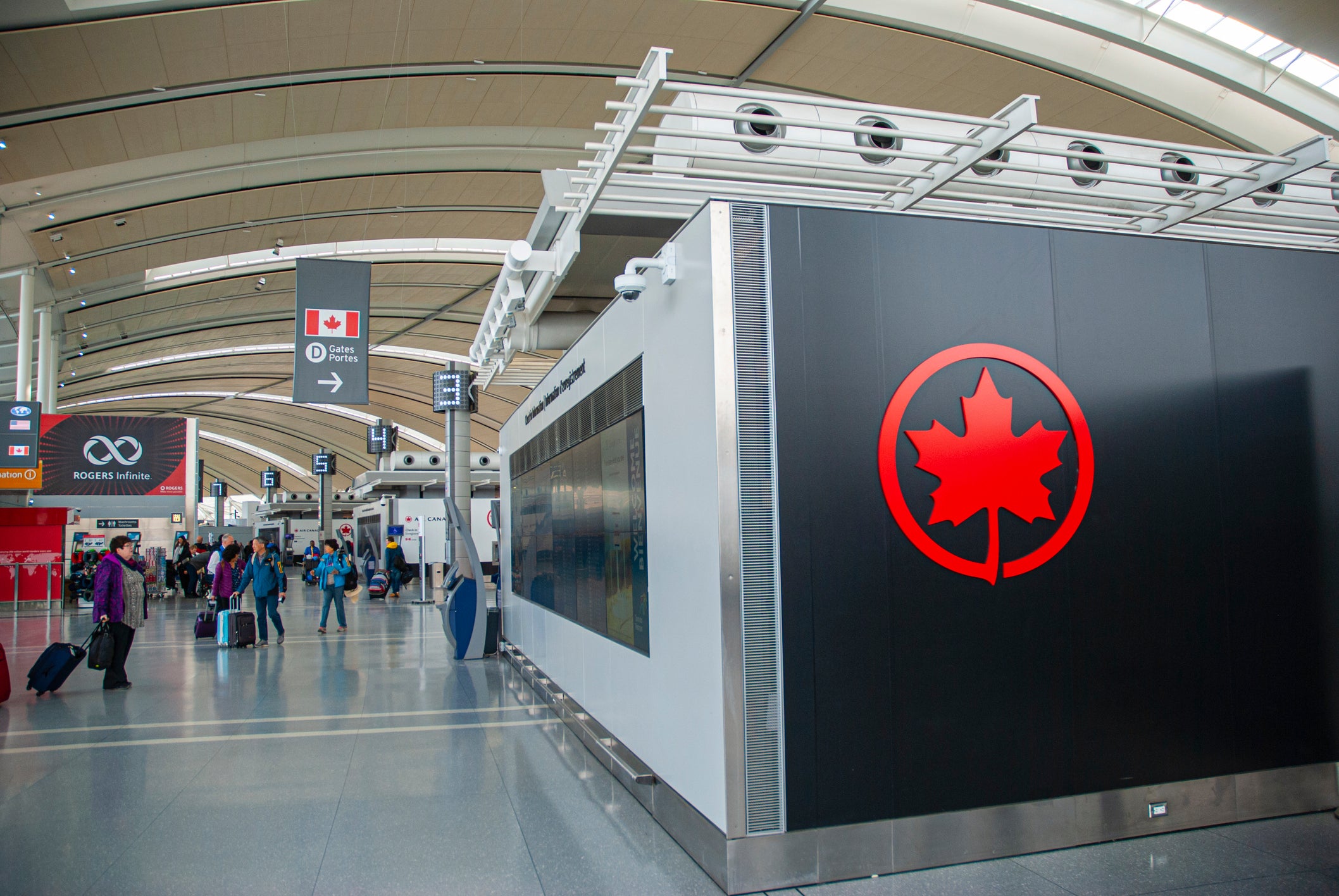At the peak of the summer season, Air Canada has announced “a complete cessation of flying” by Friday 16 August due to a strike by cabin crew.
Members of the Canadian Union of Public Employees working for the airline are walking out in a long and bitter pay dispute. The shutdown will affect passengers with both Air Canada and its low-cost subsidiary, Rouge.
Air Canada says it has offered “a 38 per cent total compensation increase over four years”. But the union says: “With respect to Air Canada’s latest offer: it is below inflation, below market value, below minimum wage.”
The union says it “received an unprecedented 99.7 per cent strike mandate from its membership.”
When Air Canada received the strike notification, it issued a “lockout notice” – which the Canadian Industrial Relations Board (CIRB) defines as: “The closing of a place of business or a suspension of work by an employer.”
Michael Rousseau, the airline’s president and chief executive, said: “Our only responsible course of action is to provide certainty by implementing an orderly suspension of Air Canada’s and Air Canada Rouge’s operations through a lockout.
“Unplanned or uncontrolled shutdowns, such as we are now at risk of through a strike, can create chaos for travellers that is far, far worse.”
Cancellations began on Wednesday 13 August, with more planned for Thursday. All Air Canada flights are expected to cease by Friday.
These are the key questions and answers for passengers.
How will the strike affect passengers?
Air Canada flies about 120,000 passengers per day in August – more than 3,000 of them to or from the UK. The airline’s main British airport is London Heathrow, with additional flights to and from Gatwick, Manchester and Edinburgh.

The carrier says: “Customers will be notified of alternative travel options that are identified for them. However, given other carriers are already very full due to the summer travel peak, securing such capacity will take time and, in many cases, will not be immediately possible.”
Air Canada says it “has made arrangements with other Canadian and foreign carriers to provide customers alternative travel options to the extent possible”.
What are my rights if my flight is cancelled?
If your flight was due to start in the UK or EU, and is cancelled, Air Canada must find an alternative way to get you to your destination as close to the original timings as possible.
The obvious transatlantic replacement would be on British Airways, Air Transat or WestJet between the UK and Canada, if seats are available.
Air Canada is also likely to rebook passengers with its Star Alliance partner, United. This might involve flying from the UK to Canada via the US – which would require you to go through the onerous business of getting an Esta permit and clearing the US frontier for the hour or two you will be spending there between flights.
While passengers are waiting to be flown where they need to be, they can expect to be provided with hotel accommodation and meals if necessary.
If your journey begins in Canada, the Air Passenger Protection Regulations (APPR) apply. For cancellations that are the airline’s responsibility, travellers would be entitled to compensation as well as hotels and meals as necessary.

But unlike European air passengers’ rights rules, the Canadian regulations excuse airlines a duty of care if the cause of disruption is outside its control. According to the APPR, “a labour disruption within the carrier” is regarded as beyond an airline’s control. So there is no entitlement to care.
Could travel insurance help?
In some circumstances, notably for additional expenses incurred as a result of the strike that cannot be covered by anyone else, you can claim on travel insurance. But you would be expected to approach the airline first before claiming for out-of-pocket costs.
For flights from the UK, the airline is responsible for extra costs; from Canada, it is not.
Will I get compensation?
Possibly for a flight leaving from a UK airport. Under British air passengers’ rights rules, there is no consensus that industrial action entitles travellers whose flights are cancelled to claim cash compensation.
Canada’s APPR holds that strikes are outside Air Canada’s control and no compensation is payable.
How long will this go on?
Hopefully days rather than weeks or months. Air Canada is set to lose tens of millions of dollars each day until the strike ends. But the two sides are a long way apart.
The Canadian Union of Public Employees says: “We have always been available to negotiate. The union was available to continue discussions while it sought a strike mandate – the company never reached out.”
The aim of Air Canada’s pre-emptive lockout, according to CIRB, is to pressure the union into agreeing to terms and conditions of employment and sign a collective bargaining agreement. The airline hopes that the shutdown will persuade the union to agree to binding arbitration.
Even when flights resume, it will be some time before a full service is re-established.
For more travel news and advice, listen to Simon Calder’s podcast




